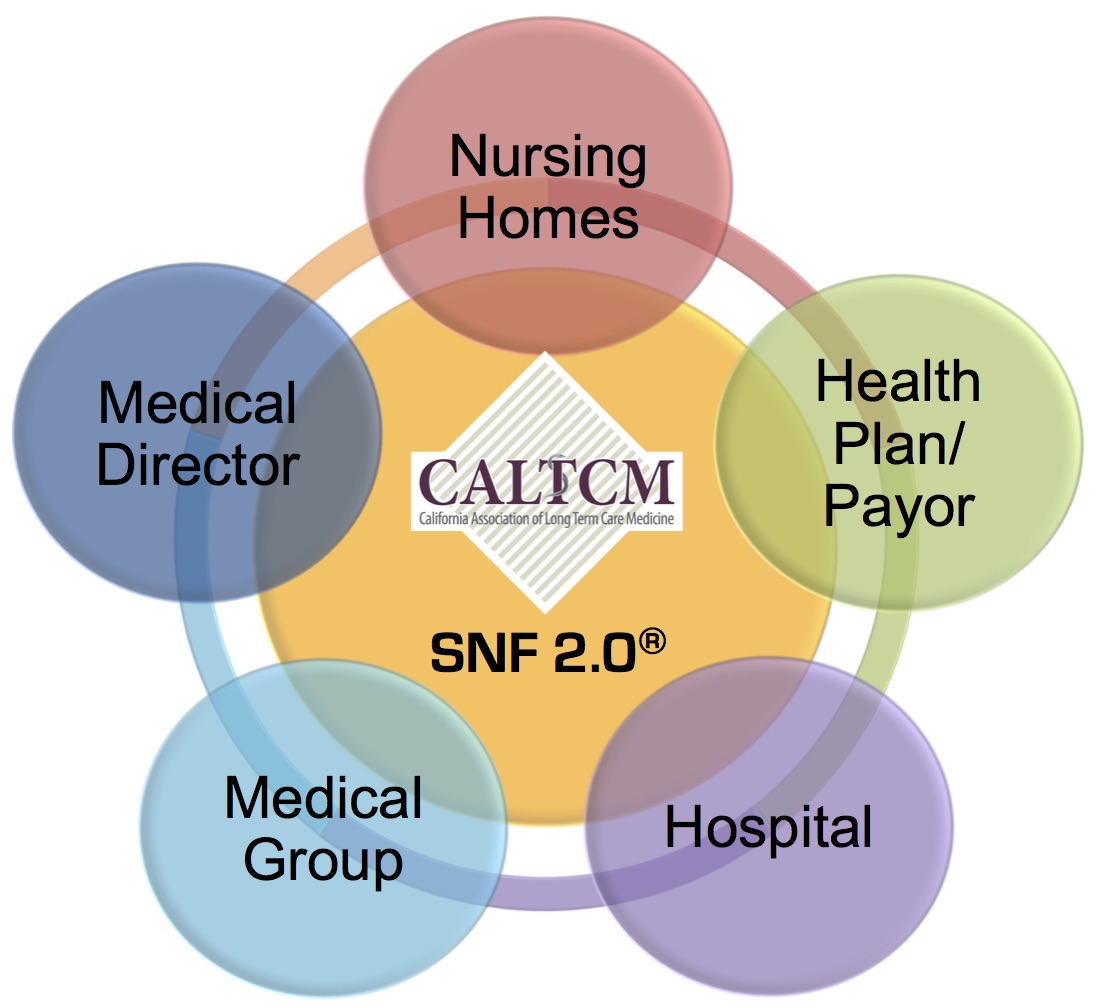 CALTCM SNF 2.0® CALTCM SNF 2.0®
Working Together to Improve Care, Communication and Continuity for our Patients
The California Association of Long Term Care Medicine (CALTCM) is dedicated to improving quality patient care in California. CALTCM SNF 2.0® a unique opportunity for nursing homes interested in reducing avoidable readmissions. The CALTCM SNF 2.0® program goes beyond the typical training program and provides custom in-depth, on-site mentorship to participating nursing homes for approximately 6 months.
Interested in implementing CALTCM SNF 2.0® in your nursing home?Contact Barbara Hulz at (888) 332-3299 or send an email to [email protected].
Project Details
Training & Implementation Goals
- Train California Nursing Homes in the Interventions to Reduce Acute Care Transfers (INTERACT)
- Reduce avoidable hospital transfers
- Create collaborations with hospitals and health plans to improve the quality of care
- Align care with residents’ wishes
Target Audience: Nursing Home Leadership Team
- Medical Director
- Director of Nurses
- Administrator
- DSD / Project Champions
Advantages
Staff benefits:
- Improve communication between clinicians
- Increase nurse competency & confidence
- Improve patient experience
- Improve quality of care
Improve Collaboration Between:
- Hospitals
- Health Plans
- Medical Providers
- Nursing Homes
Increase patient satisfaction
Here is a sample of patients reporting overall “Very Good” or “Excellent” care:
- Pre-training: 70%
- Post-training: 90%
Facilitate the Sustainability of Quality Improvement Efforts
Nursing Home to Hospital Readmissions
Frequency
- 66% of 2013 CA NH discharges went to Hospitals
- Close to 20% of NH admissions are readmitted to Hospitals within 30 days
Cost
- Readmissions are expensive: $15,000 - Average cost per NH readmission in CA (average per CA QIO: Health Services Advisory Group)
High Readmission Rates Represent Poor Care
- Worsens confusion/delirium, weakness & insomnia
- Increases risk for new infections, depression & falls
- Unpleasant patient and family experience
Preventability
- Up to 2/3 of rehospitalizations may be preventable with appropriate and timely interventions
|